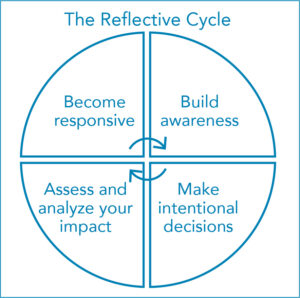
I’m Pete, and I’m a journaler. I actually started as a storyteller, back in the day, when I kept a dozen sketchbooks full of tales of teddy bears, game summaries of make-believe baseball teams, and lyrics to various rap songs (some jotted painstakingly from the radio, others I made up). I wrote while hunkered down under my bed, I wrote sitting on the deck, I wrote at the kitchen table. The point is, I’ve always enjoyed writing, and I keep doing it (witness this blog: yeah, I wrote it). And I feel there are tons of benefits to writing in a journal. Here are a few:
1. You’re in charge of the narrative.
- When you’re writing something, you literally hold the pen. That means you can decide what you write, what you ignore, what perspective you record, what events happen next. You needn’t be at the mercy of any outside force, because the strongest inside force imaginable (your mind) is in charge. And I don’t know about you, but I’m a control freak, so journaling really helps to satiate that need.
2. Writing is the great synthesizer.
- When you write something, you take the mix of thoughts and emotions you’re experiencing, and you put them onto paper. In order for them to make sense, you’ve got to organize them, arrange them somehow, choose the words you’re going to use, and then write it. Those steps help to clarify your thinking and orient your mind to what’s most important.
3. This is a great way to process.
- For the past two decades or so, I’ve spent quite a bit of energy studying the art of self-reflection, and how important this process can be to help us understand the world around us, become more aware of our surroundings and our decisions, and alert us to how we influence others. Writing our reflections helps us to hone that skill and truly focus our mental energy where it will benefit us the most.
And speaking of (I mean, writing of) how to best benefit our reflective focus, I’ve recently teamed with Mary Smith and Alisa Simeral to build a reflective journal for educators, A Teacher’s Reflective Impact Journal. The goal of this tool is to prompt you to orient your thoughts in a certain direction, then to lead you through a very deliberate progression of additional questions . . . allowing you to process your professional responsibilities in a thoughtful, intentional, and advantageous manner. The deliberate progression is called The Reflective Cycle, and it’s a tool Alisa and I created to facilitate self-reflective growth. (You can read more about it in Teach, Reflect, Learn and our recent Pursuing Greatness, which we wrote with Bryan Goodwin at McREL.)
No matter what you’re working on, this tool can help you think your way through it. We’ve created A Teacher’s Reflective Impact Journal to guide you through celebrating your successes, overcoming your obstacles, fixing your blunders (no worries, we all have them), answering your own questions, and tackling your goals. And guess what? The whole time, you’re in charge!
We’ve found that success is embedded in the fabric of reflection. The more we reflect, especially following the pattern in the Reflective Cycle, the greater our success, the more likely we are to learn from our mistakes, and the more optimistic we’ll be when facing an unknown challenge. So whether or not you’d consider yourself a journaler, I highly recommend that you journal. There is no right or wrong; just write your truth.
Pete Hall is a former teacher and principal who has built on his journaling skills to author nine books, this new reflective journal, dozens of articles, dozens of blogs, a handful of short stories, and a novel. Write him (haha) at PeteHall@EducationHall.com.


